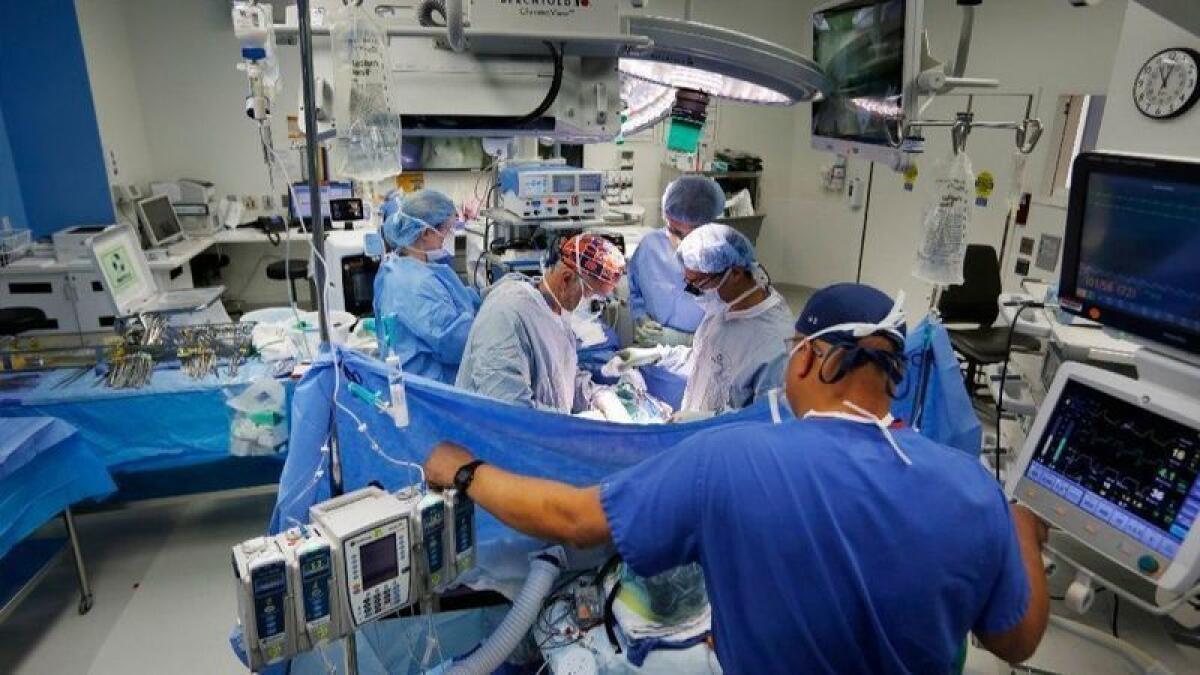Readers React: Piecemeal improvements in U.S. healthcare won’t boost life expectancy. Universal coverage will

To the editor: As Dr. Robert Pearl notes, the United States ranks 29th globally in age-adjusted mortality, and life expectancy is falling. His suggestions for saving 500,000 lives annually are all worthwhile and doable, but they will not happen unless we institute significant changes in our health system.
In most developed countries, if one is sick and not able to work, he calls in and follows up the same day with a visit to his local healthcare clinic or doctor. This is routine and does not affect his income. In Great Britain, prescriptions are filled free of cost at a local pharmacy.
If we were to change our attitude about healthcare access, with our high standards of care we would rapidly rise to the top of global rankings. All it takes is concerted action to provide for universal care.
Marcel E. Nimni, Santa Monica
The writer is a professor emeritus at USC’s Keck School of Medicine.
..
To the editor: I agree with Dr. Pearl’s contention that we have the knowledge and resources to improve medical outcomes. However, the ongoing drop in U.S. life expectancy underscores the impediments to progress.
These include, to name a few: lack of insurance coverage, the financial conflicts of interest of health providers, misguided legislative policies, and inefficient dissemination of updated treatment guidelines. Improvements in treatments for hypertension, cancer screening and smoking cessation are all low-hanging fruit that might yield improvements given the proper systemic policies and incentives.
But, as a gastroenterologist, I disagree with Dr. Pearl’s prescription for FIT testing in lieu of a colonoscopy for colon cancer screening. A recent National Institutes of Health study evaluated FIT testing and showed that between 14% and 29% of positive tests were predictive of advanced precancerous polyps or colon cancer, while between 71% and 86% were false positives.
Colonoscopy remains the gold standard.
Stephen Levinson, MD, Burbank
..
To the editor: Dr. Pearl writes that avoidable medical errors kill about 200,000 people a year. That’s an astounding 548 deaths a day, the equivalent of two or three airplane crashes. It’s the third-leading cause of death after heart disease and cancer, according to a Johns Hopkins University study.
His suggestion to stem the carnage is to ensure medical staff wash their hands between patient visits.
There are engineering solutions that can nearly eliminate errors, especially like these, which is why pilots are not crashing two or three planes a day. Other industries apply them.
Why isn’t technology being used to greater effect to help medical staff?
Thomas D. Penfield, Cardiff, Calif.
Follow the Opinion section on Twitter @latimesopinion and Facebook
More to Read
A cure for the common opinion
Get thought-provoking perspectives with our weekly newsletter.
You may occasionally receive promotional content from the Los Angeles Times.






